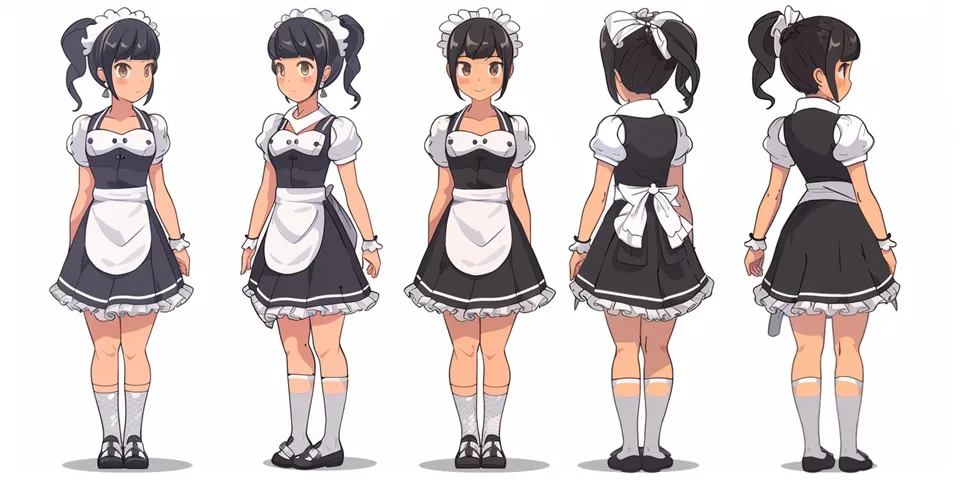Don't judge a book fanfiction
Welcome to the world of fanfiction, a creative arena which often asks us, "Don't judge a book by its cover." Here, tales draw inspiration from established literary works and their characters, themes, plots, or settings. Fanfiction is not a recent phenomenon, but its digital world has broadened the horizons significantly for both readers and creators. In this article, let's venture into the intricate world of fanfiction and assess some fundamental aspects associated with it.
II. Conception of Fanfiction
Fanfiction, in essence, is a literary genre with roots in fandom culture. Fans take widely-known characters and storylines and add their unique perceptions, interpretations, or expected continuations—bringing a different essence to the existing work. Be it Harry Potter's secret adventures or previously unexplored Star Trek galaxies, fanfiction has been reshaping our perspectives of many a stories.

Given its very nature, fanfiction is often disregarded as derivative or lacking originality, but it's vital to remember the age-old adage—"Don't judge a book by its cover." Fanfiction may revisit traditional parameters, yet it presents them through creative facets that often tread new waters.
III. Platforms: Wattpad, AO3, and Fanfiction.net
Virtual platforms like Wattpad, Archive of Our Own (AO3), and Fanfiction.net are the heartlands of fanfiction culture. These sites are not merely story repositories but serve as vibrant, interactive communities that stimulate literary enthusiasm worldwide.
Wattpad, while not entirely dedicated to fanfiction, boasts a robust fanfiction category. AO3 offers a more specialized, user-friendly interface dedicated to fanfiction, where authors can define their content with diverse tags. Comparatively, Fanfiction.net is the oldest platform, harboring various fandoms but lacking AO3's comprehensive tag system.
IV. Genre Placement
When categorizing literature, fanfiction is often placed in a grey area. While it's a derivative form, it possesses the ability to establish its unique narrative style, voice, and elements. This manifests in spun-off sub-genres, such as AU (Alternate Universe) or crossover fanfics, offering a refreshing spin on original works.
V. Empowering the Marginalized
Fanfiction, given the extent of its freedom, has been a tool for marginalized individuals or groups to share their narratives. From exploring LGBTQ+ themes to delving into cultural representation, fanfiction has allowed underrepresented voices to be heard, seen, and identified, opening avenues often untouched in mainstream literature.
VI. Grey Lines of Copyright
Copyright issues are an extensive landscape when it comes to fanfiction. Most authors permit fan-created content as long as it's non-profit and attributes copyright appropriately. In certain scenarios, some receive a takedown notice from the original authors or creators. It's ethically vital for fanfiction to respect original creations, as well as the author's rights.
VII. Evaluation: Constructive Criticism vs. Hating
Fanfiction, due to its public availability, is subjected to a wide range of critiques—constructive criticism from keen readers trying to encourage improvement, and hating, born out of outright negativity. It's crucial to differentiate the two—criticism drives improvement, while hate only infests negativity.
VIII. Future of Fanfiction
With the global popularity of franchises such as Marvel, DC, Star Wars, Harry Potter, and more, fanfiction is on an undeniable rise. It allows fandoms to interact, speculate, and express their theories, attachments, and emotions about the characters and stories they love. Fanfiction's future appears robust with the proliferation of online platforms and its growing acceptance in mainstream culture.
IX. Q&A
Q1: Is fanfiction illegal?
A: Mostly not, as long as it's non-profit, attribute the copyright correctly and the author or creator allows it.
Q2: Can anyone write fanfiction?
A: Yes, fanfiction thrives on fans' imaginations and interpretations. Anyone with a passion for a particular work can write fanfiction.
Q3: Are there any famous works that began as fanfiction?
A: Yes, E.L. James' "Fifty Shades of Grey" began as a Twilight fanfiction.
X. References:
1. Coker, Catherine. (2011). "Fan Fiction." in Encyclopedia of Library and Information Sciences, Third Edition, Taylor & Francis.
2. Hetch, Rachel. (2015). "Transfiguring Fandom: Convergence Culture, Wizard Rock, and Canonized Fan Fiction in Leaky Cauldron communities." Transformative Works and Cultures, no. 20.
Explore your companion in WeMate